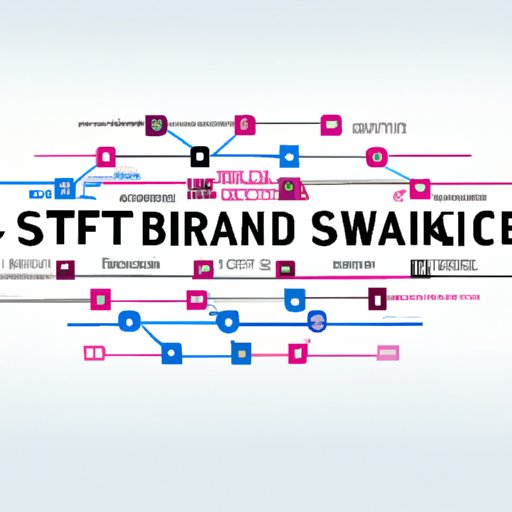Introduction
The Society for Worldwide Interbank Financial Telecommunication (SWIFT) is an international banking organization that facilitates secure and reliable financial transactions between banks, securities firms, and other financial institutions around the world. Established in 1973, SWIFT has become one of the most important networks for global financial transactions and is used by more than 11,000 financial institutions in over 200 countries.
Exploring the Role of SWIFT in Global Financial Transactions
SWIFT enables financial institutions to securely exchange messages and transfer funds across borders. Through the use of modern technology, SWIFT provides a platform for international money transfers, allowing banks and financial institutions to quickly and securely process payments and settlements. Additionally, SWIFT offers services such as fraud detection, compliance monitoring, and auditing.
SWIFT also plays an important role in facilitating global trade and commerce, enabling businesses to quickly and safely transfer money across borders. According to a study conducted by the World Bank, “SWIFT’s services are essential to the functioning of global markets, helping to ensure the safe, timely, and efficient transfer of payments and securities.”
Advantages of Utilizing SWIFT for Cross-Border Payments
One of the main advantages of utilizing SWIFT for cross-border payments is that it is fast and secure. By using SWIFT, banks and financial institutions can send and receive payments within minutes, eliminating costly delays associated with traditional wire transfers. Additionally, SWIFT utilizes cutting-edge security measures to protect sensitive financial data from unauthorized access and tampering.
Another benefit of using SWIFT for financial transfers is that it is cost-effective. By leveraging the latest technology, SWIFT can reduce the costs associated with international payments, allowing banks and financial institutions to save time and money.
Finally, SWIFT allows for greater transparency in global financial transactions. Banks and financial institutions can track their payments in real-time, giving them greater visibility into the status of their transactions.

Significance of SWIFT in International Money Transfer
The significance of SWIFT in international money transfer cannot be overstated. By providing a secure and reliable platform for global financial transactions, SWIFT has revolutionized the way banks and financial institutions conduct business. As a result, international money transfers have become faster, cheaper, and more secure.
In addition, SWIFT has helped to facilitate global trade and commerce by allowing businesses to quickly and safely transfer money across borders. This has enabled companies to increase their global reach, expand their customer base, and lower costs associated with international payments.
Examining the Benefits of Utilizing SWIFT for Cross-Border Payments
In order to understand how SWIFT facilitates seamless cross-border payments, it is important to examine the security features of SWIFT. SWIFT utilizes a number of sophisticated technologies to protect sensitive financial data, including encryption, authentication, and authorization. Additionally, SWIFT employs advanced fraud detection systems to detect suspicious activity and prevent unauthorized access.
In addition to these security features, SWIFT also offers additional benefits to banks and financial institutions. For example, SWIFT allows banks to monitor their payments in real-time, giving them greater visibility into the status of their transactions. Furthermore, SWIFT enables banks to automate certain processes, such as reconciliation and settlement, which can help to reduce the costs associated with international payments.
Conclusion
The Society for Worldwide Interbank Financial Telecommunication (SWIFT) has revolutionized the way banks and financial institutions conduct business. By providing a secure and reliable platform for global financial transactions, SWIFT has enabled banks and financial institutions to quickly and securely process payments and settlements. Additionally, SWIFT has facilitated global trade and commerce by allowing businesses to quickly and safely transfer money across borders.
Overall, SWIFT has had a profound impact on international banking and financial transactions. By utilizing cutting-edge technologies to protect sensitive financial data and offering additional benefits such as real-time payment tracking and automated processes, SWIFT has made it easier and more secure for banks and financial institutions to conduct business on a global scale.
(Note: Is this article not meeting your expectations? Do you have knowledge or insights to share? Unlock new opportunities and expand your reach by joining our authors team. Click Registration to join us and share your expertise with our readers.)
